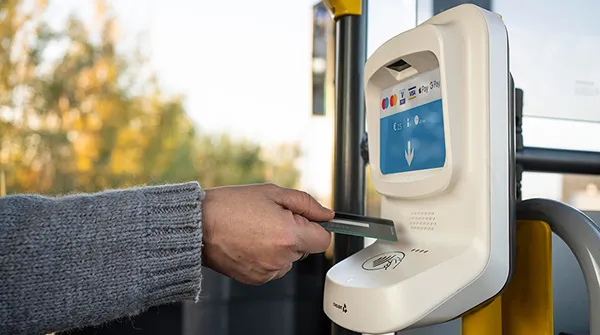Opening the 2016 General Assembly of the European Innovation Partnership (EIP) on Smart Cities and Communities (EIP SCC) which aims to improve urban life through more sustainable integrated solutions in transport, energy and ICT sectors, European Transport Commissioner Violeta Bulc challenged cities and companies to cooperate across borders, to accelerate and scale investment.
She said: "Cleaner air, safer transport networks, reducing congestion, optimising use of existing infrastructure – these are just
May 25, 2016
Read time: 2 mins
Opening the 2016 General Assembly of the European Innovation Partnership (EIP) on Smart Cities and Communities (EIP SCC) which aims to improve urban life through more sustainable integrated solutions in transport, energy and ICT sectors, European Transport Commissioner Violeta Bulc challenged cities and companies to cooperate across borders, to accelerate and scale investment.
She said: "Cleaner air, safer transport networks, reducing congestion, optimising use of existing infrastructure – these are just some of the reasons why smart city development is so important. Cities need to come together in order to scale such investments into smart city development and to scale fast. A key priority for this Commission is simplifying and broadening access to finance; as well as developing innovative financing. We want more money to flow into good projects that can be replicated in cities across Europe, and then exported as solutions to the rest of the world. European cities and European companies need to stay in the global lead for smart and connected urban mobility. Therefore, better collaboration and co-creation between public and private partners is very much needed!"
The Commissioner also announced that the new EIB ELENA facility is now ready to provide broader technical assistance to cities for creating large scale investable projects in innovative urban energy and transport. The assistance is fully aligned with the European Investment Advisory Hub and has a budget of US$56 million (EUR 50 million) in 2016 and 2017.
Bulc underlined the readiness of the Commission and the European Investment Bank to support cities and companies in this endeavour. Noting the recent announcement of the Dutch government that from 2025 onwards all public buses in the Netherlands should be emission-free, Bulc further encouraged cities and regions to switch to alternatively fuelled vehicles.
As part of the EIP’s action cluster initiatives on urban mobility, up to 70 partners from cities, regions and companies already collaborate to advance innovative solutions in the field of smart electro-mobility and mobility services. Action manifestos have been signed in January 2016. First proposals for technical assistance and financing support in the field of electric buses are under discussion. The cities of Lyon and Birmingham are lead-supporters to the roll-out of an urban multi-modal dataset and interface to enable better access to data and interoperability in up to 50 cities.
She said: "Cleaner air, safer transport networks, reducing congestion, optimising use of existing infrastructure – these are just some of the reasons why smart city development is so important. Cities need to come together in order to scale such investments into smart city development and to scale fast. A key priority for this Commission is simplifying and broadening access to finance; as well as developing innovative financing. We want more money to flow into good projects that can be replicated in cities across Europe, and then exported as solutions to the rest of the world. European cities and European companies need to stay in the global lead for smart and connected urban mobility. Therefore, better collaboration and co-creation between public and private partners is very much needed!"
The Commissioner also announced that the new EIB ELENA facility is now ready to provide broader technical assistance to cities for creating large scale investable projects in innovative urban energy and transport. The assistance is fully aligned with the European Investment Advisory Hub and has a budget of US$56 million (EUR 50 million) in 2016 and 2017.
Bulc underlined the readiness of the Commission and the European Investment Bank to support cities and companies in this endeavour. Noting the recent announcement of the Dutch government that from 2025 onwards all public buses in the Netherlands should be emission-free, Bulc further encouraged cities and regions to switch to alternatively fuelled vehicles.
As part of the EIP’s action cluster initiatives on urban mobility, up to 70 partners from cities, regions and companies already collaborate to advance innovative solutions in the field of smart electro-mobility and mobility services. Action manifestos have been signed in January 2016. First proposals for technical assistance and financing support in the field of electric buses are under discussion. The cities of Lyon and Birmingham are lead-supporters to the roll-out of an urban multi-modal dataset and interface to enable better access to data and interoperability in up to 50 cities.









